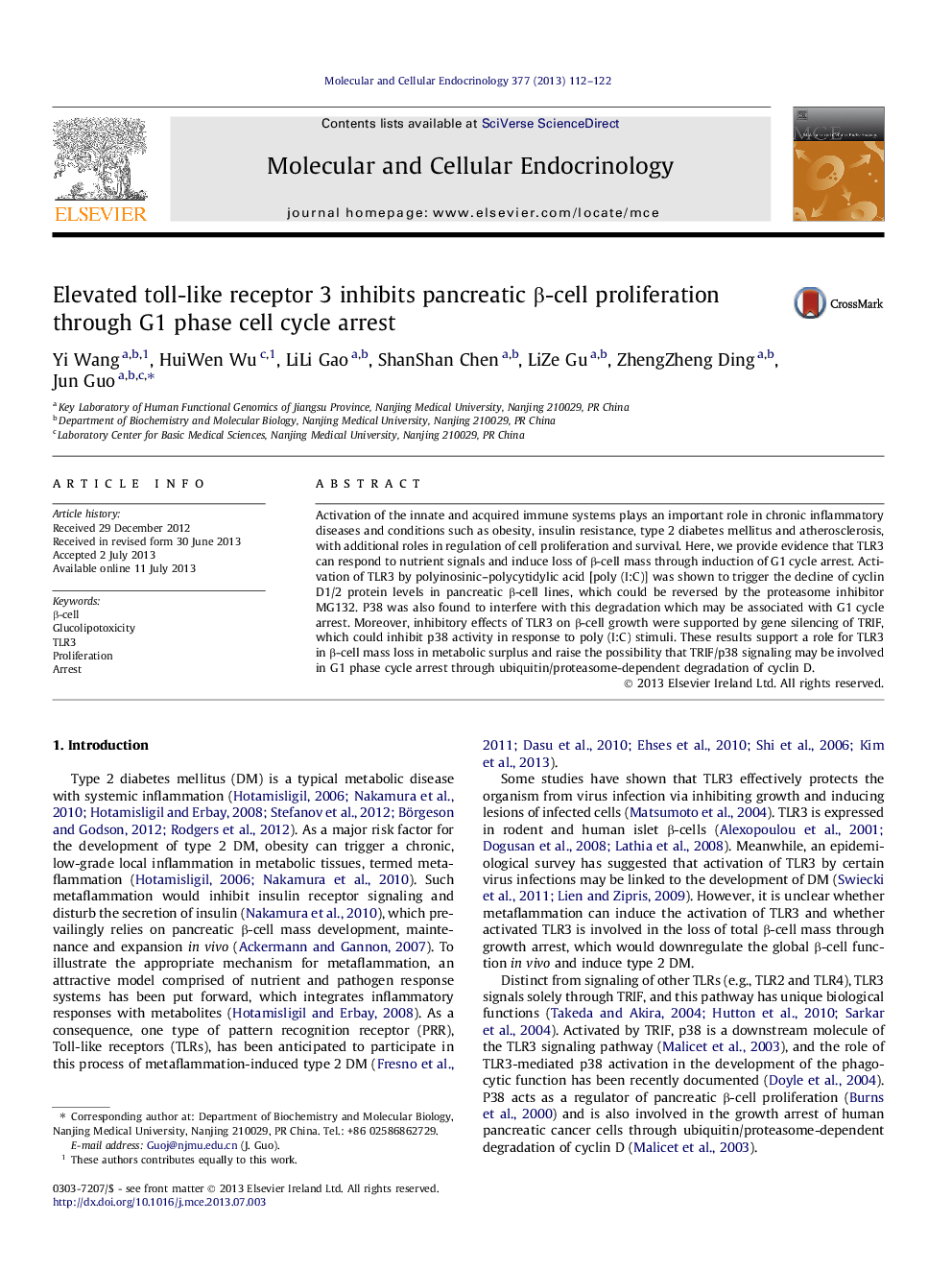| Article ID | Journal | Published Year | Pages | File Type |
|---|---|---|---|---|
| 8477343 | Molecular and Cellular Endocrinology | 2013 | 11 Pages |
Abstract
Activation of the innate and acquired immune systems plays an important role in chronic inflammatory diseases and conditions such as obesity, insulin resistance, type 2 diabetes mellitus and atherosclerosis, with additional roles in regulation of cell proliferation and survival. Here, we provide evidence that TLR3 can respond to nutrient signals and induce loss of β-cell mass through induction of G1 cycle arrest. Activation of TLR3 by polyinosinic-polycytidylic acid [poly (I:C)] was shown to trigger the decline of cyclin D1/2 protein levels in pancreatic β-cell lines, which could be reversed by the proteasome inhibitor MG132. P38 was also found to interfere with this degradation which may be associated with G1 cycle arrest. Moreover, inhibitory effects of TLR3 on β-cell growth were supported by gene silencing of TRIF, which could inhibit p38 activity in response to poly (I:C) stimuli. These results support a role for TLR3 in β-cell mass loss in metabolic surplus and raise the possibility that TRIF/p38 signaling may be involved in G1 phase cycle arrest through ubiquitin/proteasome-dependent degradation of cyclin D.
Related Topics
Life Sciences
Biochemistry, Genetics and Molecular Biology
Cell Biology
Authors
Yi Wang, HuiWen Wu, LiLi Gao, ShanShan Chen, LiZe Gu, ZhengZheng Ding, Jun Guo,
